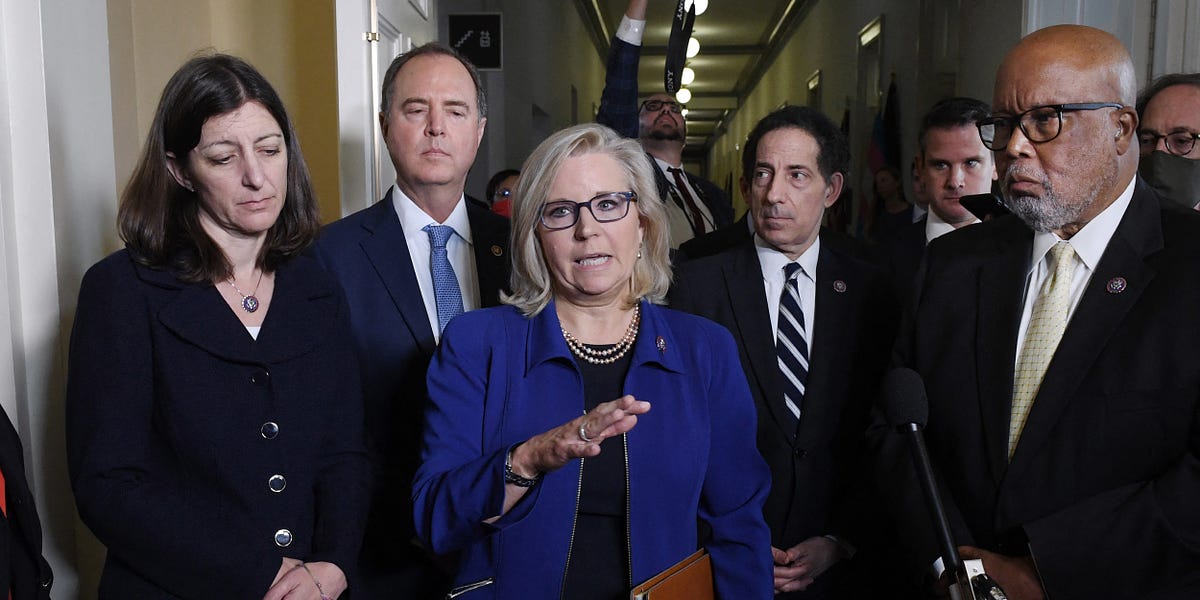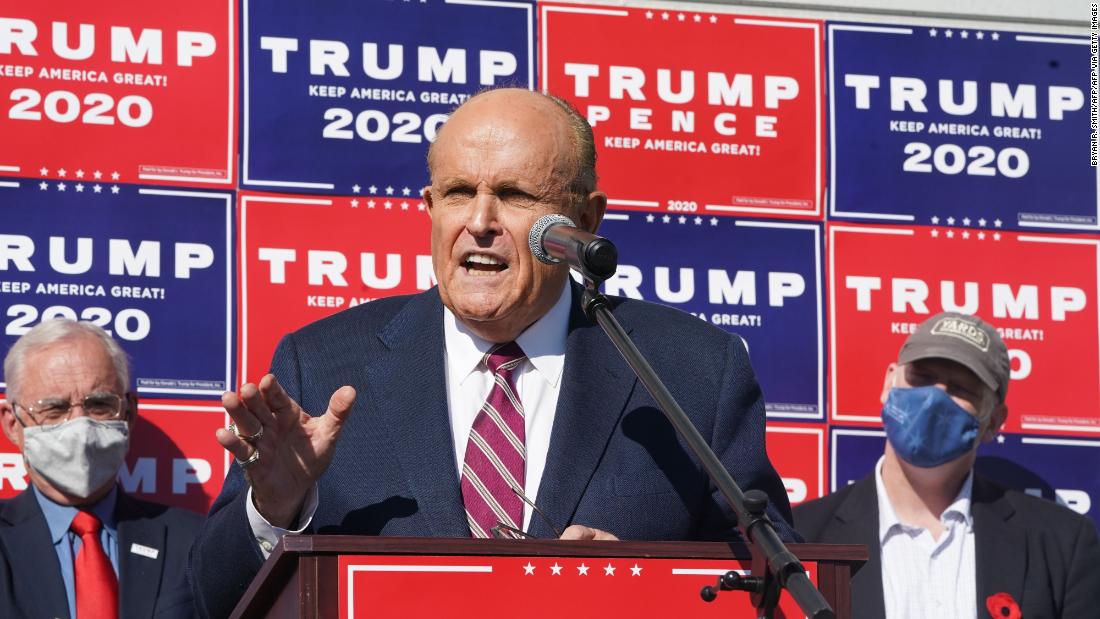excalibur
Diamond Member
- Mar 19, 2015
- 22,770
- 44,368
- 2,290
They are totally out of control. And violating the Constitution.
Democrats abusing their power big time.
In its ongoing attempt to investigate and gather information about private U.S. citizens, the Congressional 1/6 Committee is claiming virtually absolute powers that not even the FBI or other law enforcement agencies enjoy. Indeed, lawyers for the committee have been explicitly arguing that nothing proscribes or limits their authority to obtain data regarding whichever citizens they target and, even more radically, that the checks imposed on the FBI (such as the requirement to obtain judicial authorization for secret subpoenas) do not apply to the committee.
As we have previously reported and as civil liberties groups have warned, there are serious constitutional doubts about the existence of the committee itself. Under the Constitution and McCarthy-era Supreme Court cases interpreting it, the power to investigate crimes lies with the executive branch, supervised by the judiciary, and not with Congress. Congress does have the power to conduct investigations, but that power is limited to two narrow categories: 1) when doing so is designed to assist in its law-making duties (e.g., directing executives of oil companies to testify when considering new environmental laws) and 2) in order to exert oversight over the executive branch.
What Congress is barred from doing, as two McCarthy-era Supreme Court cases ruled, is exactly what the 1/6 committee is now doing: conducting a separate, parallel criminal investigation in order to uncover political crimes committed by private citizens. Such powers are dangerous precisely because Congress’s investigative powers are not subject to the same safeguards as the FBI and other law enforcement agencies. And just as was true of the 1950s House Un-American Activities Committee (HUAC) that prompted those Supreme Court rulings, the 1/6 committee is not confining its invasive investigative activities to executive branch officials or even citizens who engaged in violence or other illegality on January 6, but instead is investigating anyone and everyone who exercised their Constitutional rights to express views about and organize protests over their belief that the 2020 presidential election contained fraud. Indeed, the committee's initial targets appear to be taken from the list of those who applied for protest permits in Washington: a perfectly legal, indeed constitutionally protected, act.
This abuse of power is not merely abstract. The Congressional 1/6 Committee has been secretly obtaining private information about American citizens en masse: telephone records, email logs, internet and browsing history, and banking transactions. And it has done so without any limitations or safeguards: no judicial oversight, no need for warrants, no legal limitations of any kind.
Indeed, the committee has been purposely attempting to prevent citizens who are the targets of their investigative orders to have any opportunity to contest the legality of this behavior in court. As we reported in October, the committee sent dozens if not hundreds of subpoenas to telecom companies demanding a wide range of email and other internet records, and — without any legal basis — requested that those companies not only turn over those documents but refrain from notifying their own customers of the request. If the companies were unwilling to comply with this "request,” then the committee requested that they either contact the committee directly or just disregard the request — in other words, the last thing they wanted was to enable one of their targets to learn that they were being investigated because that would enable them to seek a judicial ruling about the legality of the committee's actions.
But now the committee is escalating its aggressive investigative actions. They have begun sending subpoenas to private banks, demanding the banking records of private citizens, and doing so such that either the person never finds out or finds out too late to obtain a judicial order about the legality of the committee's behavior. In one case, they targeted JP Morgan with these subpoenas while knowing that that bank is being represented by former Obama Attorney General Loretta Lynch; Lynch — unsurprisingly — then directed her client not to accommodate any requests from its own customers to ensure then can seek judicial review.
...
At the hearing, the committee's lawyers essentially repeated the same argument they advanced in their legal brief: namely, that none of the legal safeguards imposed on the FBI and other law enforcement agencies to guard against abuse of power apply to this Congressional committee, which therefore enjoys virtually absolute power to do what it wants.
...

 greenwald.substack.com
greenwald.substack.com
Democrats abusing their power big time.
The Committee plotted with JPMorgan and its lawyer, former Obama AG Loretta Lynch, to obtain a citizen's financial records with no possibility of judicial review.
In its ongoing attempt to investigate and gather information about private U.S. citizens, the Congressional 1/6 Committee is claiming virtually absolute powers that not even the FBI or other law enforcement agencies enjoy. Indeed, lawyers for the committee have been explicitly arguing that nothing proscribes or limits their authority to obtain data regarding whichever citizens they target and, even more radically, that the checks imposed on the FBI (such as the requirement to obtain judicial authorization for secret subpoenas) do not apply to the committee.
As we have previously reported and as civil liberties groups have warned, there are serious constitutional doubts about the existence of the committee itself. Under the Constitution and McCarthy-era Supreme Court cases interpreting it, the power to investigate crimes lies with the executive branch, supervised by the judiciary, and not with Congress. Congress does have the power to conduct investigations, but that power is limited to two narrow categories: 1) when doing so is designed to assist in its law-making duties (e.g., directing executives of oil companies to testify when considering new environmental laws) and 2) in order to exert oversight over the executive branch.
What Congress is barred from doing, as two McCarthy-era Supreme Court cases ruled, is exactly what the 1/6 committee is now doing: conducting a separate, parallel criminal investigation in order to uncover political crimes committed by private citizens. Such powers are dangerous precisely because Congress’s investigative powers are not subject to the same safeguards as the FBI and other law enforcement agencies. And just as was true of the 1950s House Un-American Activities Committee (HUAC) that prompted those Supreme Court rulings, the 1/6 committee is not confining its invasive investigative activities to executive branch officials or even citizens who engaged in violence or other illegality on January 6, but instead is investigating anyone and everyone who exercised their Constitutional rights to express views about and organize protests over their belief that the 2020 presidential election contained fraud. Indeed, the committee's initial targets appear to be taken from the list of those who applied for protest permits in Washington: a perfectly legal, indeed constitutionally protected, act.
This abuse of power is not merely abstract. The Congressional 1/6 Committee has been secretly obtaining private information about American citizens en masse: telephone records, email logs, internet and browsing history, and banking transactions. And it has done so without any limitations or safeguards: no judicial oversight, no need for warrants, no legal limitations of any kind.
Indeed, the committee has been purposely attempting to prevent citizens who are the targets of their investigative orders to have any opportunity to contest the legality of this behavior in court. As we reported in October, the committee sent dozens if not hundreds of subpoenas to telecom companies demanding a wide range of email and other internet records, and — without any legal basis — requested that those companies not only turn over those documents but refrain from notifying their own customers of the request. If the companies were unwilling to comply with this "request,” then the committee requested that they either contact the committee directly or just disregard the request — in other words, the last thing they wanted was to enable one of their targets to learn that they were being investigated because that would enable them to seek a judicial ruling about the legality of the committee's actions.
But now the committee is escalating its aggressive investigative actions. They have begun sending subpoenas to private banks, demanding the banking records of private citizens, and doing so such that either the person never finds out or finds out too late to obtain a judicial order about the legality of the committee's behavior. In one case, they targeted JP Morgan with these subpoenas while knowing that that bank is being represented by former Obama Attorney General Loretta Lynch; Lynch — unsurprisingly — then directed her client not to accommodate any requests from its own customers to ensure then can seek judicial review.
...
At the hearing, the committee's lawyers essentially repeated the same argument they advanced in their legal brief: namely, that none of the legal safeguards imposed on the FBI and other law enforcement agencies to guard against abuse of power apply to this Congressional committee, which therefore enjoys virtually absolute power to do what it wants.
...

Congress's 1/6 Committee Claims Absolute Power as it Investigates Citizens With No Judicial Limits
The Committee plotted with JPMorgan and its lawyer, former Obama AG Loretta Lynch, to obtain a citizen's financial records with no possibility of judicial review.


